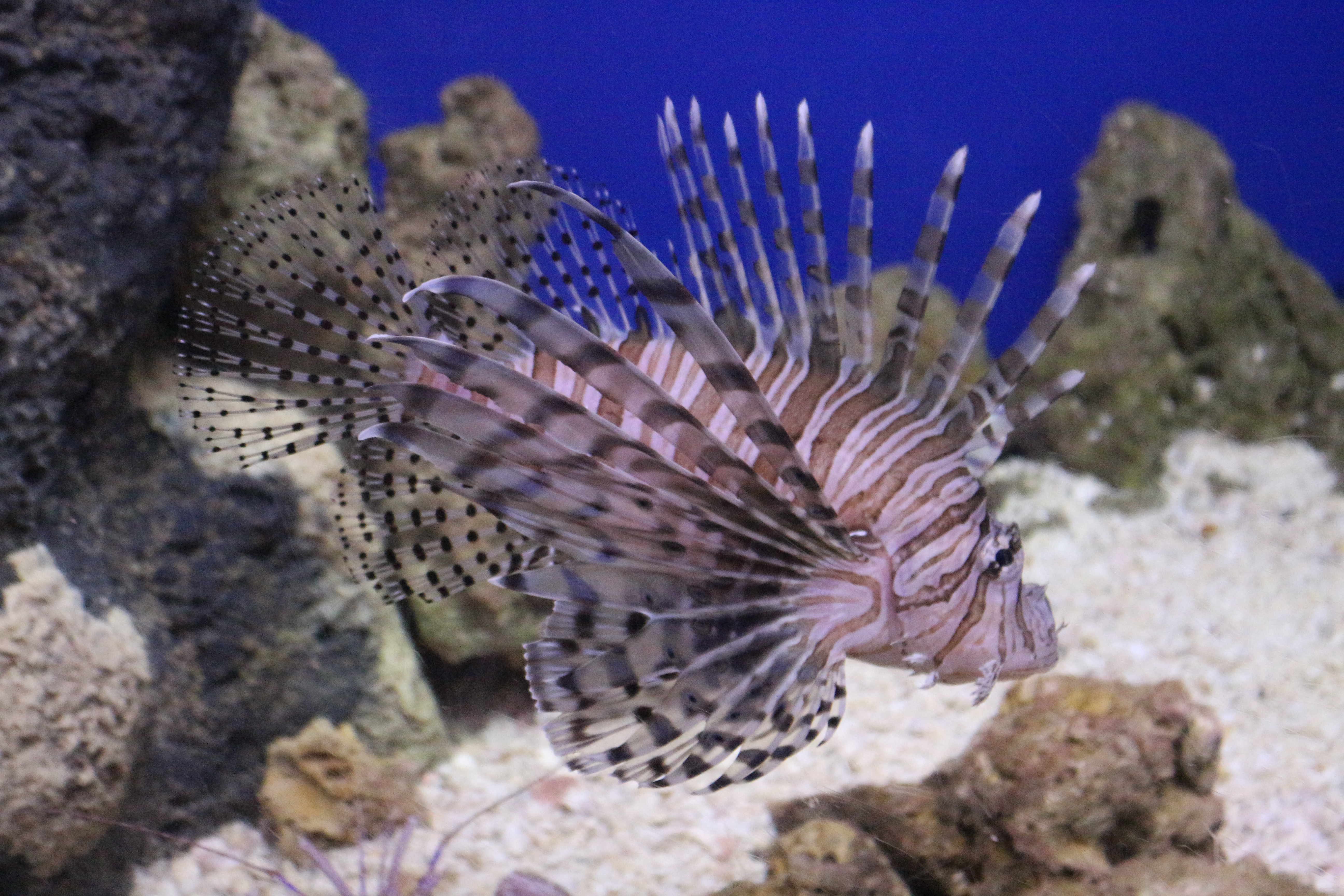
Winners
• Recreational Category
• First place Lionfish King: Ken Ayers, Bay County, 1,194 removed.
• Second place: John McCain, Gilchrist County, 983 removed.
• Third place: Shea Lowe, Escambia County, 942 removed.
• Commercial Category
• First place Commercial Champion: Joshua Livingston, Okaloosa County, 3,192.8 lbs. removed.
• Second place: Ron Surrency, Duval County, 1,720 lbs. removed.
• Third place: Alex Fogg, Okaloosa County, 1,210.5 lbs. removed.
• Largest Lionfish
• First place: Ron Surrency, Duval County, 433 mm.
• Second place: Joshua Livingston, Okaloosa County, 420 mm.
• Third place: Koa Viravong, Pinellas County, 414 mm.
• Smallest Lionfish
• First place: Nikkie Cox, Franklin County, 37 mm.
• Second place: Ken Ayers, Bay County, 45 mm.
• Third place: Alex Fogg, Okaloosa County, 52 mm.
Final Stats
• 23,451 lionfish removed.
• 349 people registered.
• 148 people submitted lionfish (134 recreational, 14 commercial).
• The Lionfish Challenge ran from May 18-Sept. 2.
Background
The Lionfish Challenge rewards harvesters with prizes for their lionfish removals. This year, participants who submitted the largest and smallest lionfish were eligible to receive up to $3,000 in cash prizes thanks to support from sponsors: American Sportfishing Association, Yamaha Motor Company, Marine Industries Association of Palm Beach County and National Marine Manufacturers Association. Thanks to these and the Lionfish Challenge Raffle sponsors including Florida Underwater Sports, Toothless Life, Lionator Pole Spears, Neritic Diving, Stream2Sea, ZooKeeper and Customatic Optics.
FWC made several changes at a June 18, 2014, meeting in Fort Myers in order to help combat the Lionfish invasion in Florida waters.
Lionfish are an invasive species that have a negative impact on native wildlife and habitat.
Approved changes in regards to the Lionfish went into effect August 1, 2014, and include:
- Prohibiting the importation of live Lionfish;
- Allowing the harvest of lionfish when diving with a rebreather, a device that recycles air and allows divers to remain in the water for longer periods of time; and
- Allowing participants in approved tournaments and other organized events to spear Lionfish or other invasive species in areas where spearfishing is not allowed. This will be done through a permitting system.
“Changes like these will make it easier for divers to remove Lionfish from Florida waters and will help prevent additional introductions of Lionfish into marine habitats,” said State Rep. Holly Raschein, who has been proactive in the Lionfish-control efforts.
From outreach and education to regulatory changes, controlling the Lionfish population has been a priority for FWC staff. In 2013, they hosted the first-ever Lionfish Summit, which brought together various stakeholders from the public as well as management and research fields to discuss the issues and brainstorm solutions. These changes were inspired in part by discussions at the Lionfish Summit.
FWC officials say the fish are venomous and they need to be kept under control or they will kill off other native fish and marine life. FWC encourages fishermen to kill the fish and discard them.
Lionfish can, in fact, be harmful to reefs and endanger other marine life because they are considered to be at the top of the food chain.
Poisonous Myth – Versus – Venomous
- There is a difference between poisonous and venomous. Lionfish are not poisonous, but in fact venomous. Lionfish have venomous spines in their dorsal fins, pelvic, and anal areas that can inject venom through a puncture wound they inflict on their prey. Lionfish are not poisonous – for the fact that – poison from a poisonous fish is delivered by ingesting it or secretion through the skin of its prey. Researchers for National Geographic say there is a clear difference between the two.
Lionfish are Edible
- Lionfish are in fact edible; despite what the public has been lead to believe. The meat of a Lionfish is white and extremely delicious said, researchers. Unlike poisonous fish that cannot be ingested, Lionfish are just the opposite. The spines must be cut off prior to eating, thus completely removing the venom. It is the same theory behind eating rattlesnake meat. Many restaurants throughout the U.S. have started listing Lionfish on their menus to promote public awareness while at the same time satisfying its customers. Lionfish have been deemed so tasty that they boast a price tag of $16 per pound, much higher than that of Red Snapper. According to the National Oceanic and Atmospheric Administration and the National Center for Coastal Ocean Science, there have not been any reported cases in the U.S. from anyone being sick after eating a Lionfish that has been filleted and served up. If you have ever dined in a Caribbean restaurant and ordered seafood, chances are you may have eaten it and not even known.
Limit on Lionfish
“The FWC does not have any set legal-size or bag limits for Lionfish,” said FWC Officer Lenny Salberg.
How Can Lionfish Be Caught
Lionfish grow to be 15-16 inches long and usually hang out around reefs and in shallow water but can be found up to 1,000 feet deep. Because Lionfish are considered to be invasive to Florida reefs and other marine life, Lionfish can be caught by any means, says FWC Officer Lenny Salberg.
- Hook
- Spear
- Net
- Trap
- Hands [Wearing proper protective gear]
In 2012, the National Oceanic and Atmospheric Administration launched a campaign in order to try and get the population of Lionfish under control and at the same time educate the public.
The slogan for that campaign is “You have to Eat’Em to Beat’Em.”
For more information visit the non-profit organization for Lionfish.






